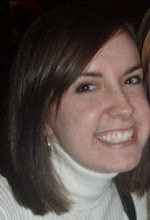Because the Auburn team and the Union team were only separated by one week, I had to be very creative when coming up with themes for our evening programs. I took a risk on the theme for Union Evening Program 1 and crafted a "mystery night." My original idea had been to create a Clue-type game (like, the board game- I love it!), but the more I thought about it, the more I decided that was a bad plan. My criteria for Union's evening programs were: a) minimal prep work, b) minimal supplies needed, c) would work well with a large group (50ish people), and d) would provide a good amount of English practice.
I started scouting on the internet and found
this. I started tinkering with the idea and came up with the following plan:
1. I created a "crime" that was committed in Poltava. The crime? A Lada (Soviet-esque car that no Ukrainian would bother stealing- this added an element of humor for the Ukrainian students) was stolen and 9 Americans (the number of people on the Union team) were suspects.
2. 3 Ukrainian friends served as our "witnesses." They made up hilarious little stories (which they told in Russian) about what they had seen. The Americans' alibi was that they had been at a local pizza place eating dinner while the car was being stolen. We had a "waitress," a "passerby," and a "security guard" give testimony of what they had "seen."
3. After our witnesses spoke, I sent the Americans out of the room. Two things happened simultaneously:
a) The Americans were to make up a more detailed alibi (I had only told them that their alibi was that they had been eating at a pizza place).
b) The Ukrainians (broken into groups around tables) were to make up questions intended to crack the Americans' alibis.
The way this works is that the suspects have a few minutes to craft details for their alibi (i.e. what they ordered, what the waitresses were wearing, what the restaurant looked like) so that they all have matching alibis. While they're doing this, the Ukrainians (in their groups) were creating lists of questions.
4. The Americans came back in and split up amongst the tables. I gave them about 4-5 minutes at each table before calling time and having them rotate (by the end, each table of Ukrainians had interviewed all of the Americans). The Ukrainians asked the same questions to each American, making note of whether or not their answers all matched.
5. After everyone had rotated to each table, I sent the Americans back out and took a vote of the Ukrainians, determining whether or not the Americans were innocent or guilty. Of course, they were guilty. :)
6. So, we decided on "punishments." Their punishments were to sing a group song ("I'm a Little Teapot"- complete with motions) and to try to pronounce an extremely difficult Russian word.
The whole thing went over very well! The Ukrainians loved it, and it seemed to break down awkward barriers between the American and Ukrainian students. I'd say it was a hit.
It's a head-scratcher, huh, John?
Dr. Fant, telling his side of the story.
Time to pay up, Americans! They were great sports about trying to pronounce their Russian word. Thankfully, I've been practicing that word for over a year now.
Staging the heist! Yes, that's a Lada.










